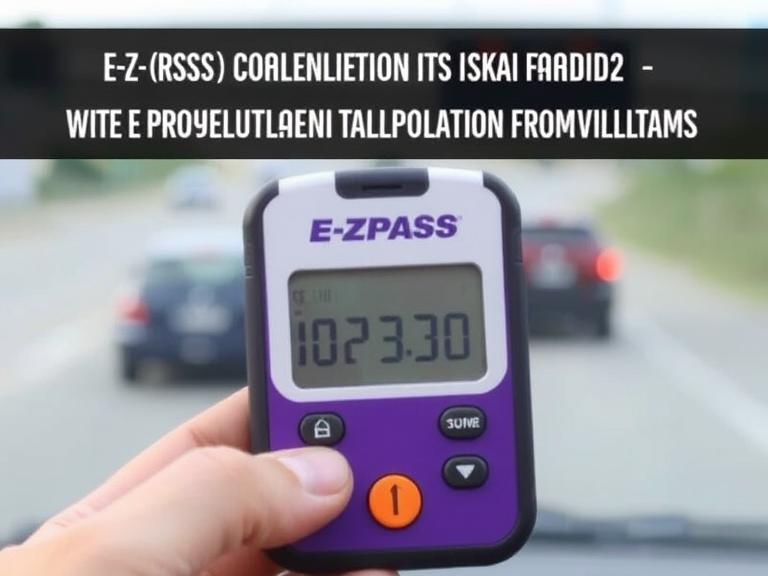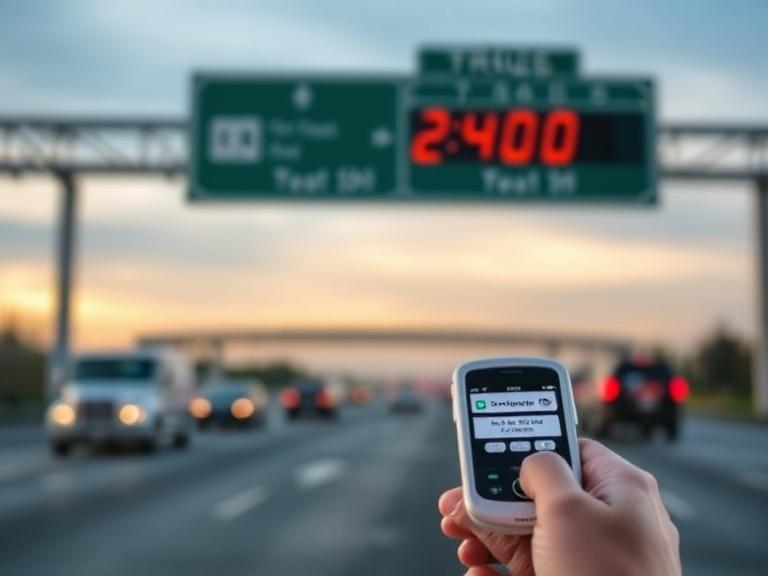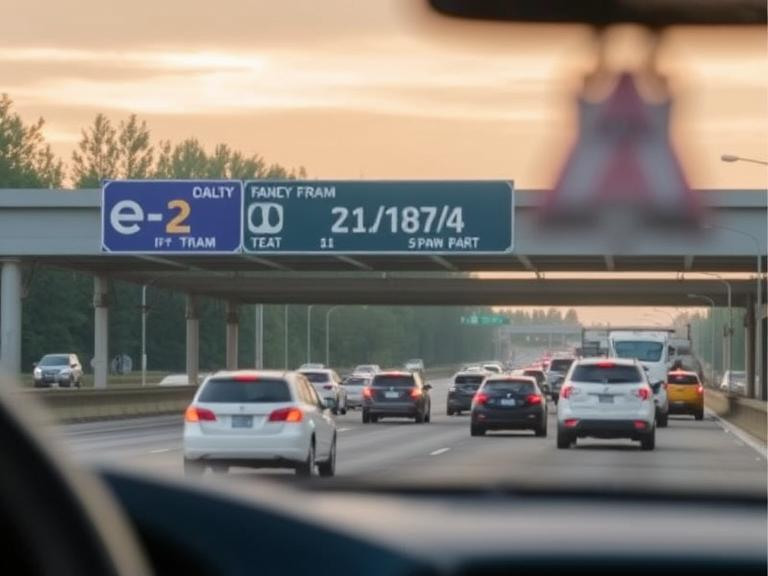E-ZPass Scam: How to Protect Yourself from Toll Fraud
E-ZPass is a convenient electronic toll collection system used by millions, but scammers have found ways to exploit it. If you receive unexpected messages about unpaid tolls, you might be the target of an E-ZPass scam. Let’s dive into how these scams work and how you can protect yourself.
What is E-ZPass?
E-ZPass is an electronic toll collection system that allows drivers to pay tolls without stopping. It operates in multiple states across the U.S., making it a popular choice for commuters and travelers. Unfortunately, its widespread use makes it a target for scammers.

How the E-ZPass Scam Works
Scammers use different tactics to trick unsuspecting victims into providing their personal and financial information. Here are the most common types of E-ZPass scams:
Fake Emails and Phishing Scams
Scammers send fake emails pretending to be from E-ZPass, claiming that you have an unpaid toll. These emails usually include a link that directs you to a fraudulent website designed to steal your payment details.
Fraudulent Text Messages
Similar to email scams, text message scams alert you of a supposed overdue toll and include a link for payment. Clicking the link can compromise your personal information or install malware on your device.
Phone Call Scams
Some scammers call victims, pretending to be E-ZPass representatives. They may claim you have an overdue balance and demand immediate payment over the phone.

How to Identify E-ZPass Scams
Red Flags to Watch For
- Unusual Email Addresses: Scammers use addresses that look similar but are slightly different from the official E-ZPass domain.
- Urgent Payment Requests: E-ZPass does not send urgent payment requests via email or text.
- Suspicious Links and Attachments: Never click on unfamiliar links or open attachments from unknown sources.
Common Tactics Scammers Use
- Fear and Urgency: Scammers create panic by warning you of fines or legal consequences.
- Impersonation of Officials: They may use official-looking logos or language to appear legitimate.
How to Protect Yourself from E-ZPass Scams
Verify Before Paying
If you receive an email or message about an unpaid toll, verify it by logging into your official E-ZPass account.
Secure Your Personal Information
Never share your login credentials or payment details over email, text, or phone calls.
Use Official Channels
Only use the official E-ZPass website or customer service number to make payments or check your account.
Install Security Software
Having antivirus software can help protect your device from malware and phishing attempts.
Report Any Suspicious Activity
If you suspect a scam, report it to E-ZPass customer service and the Federal Trade Commission (FTC).
What to Do If You’ve Been Scammed?
Contact E-ZPass Customer Support
Inform E-ZPass immediately if you believe you’ve been scammed so they can take appropriate action.
File a Fraud Report
Report the scam to the FTC and your state’s consumer protection agency.
Monitor Your Financial Statements
Check your bank and credit card statements for any unauthorized transactions.
Change Your Passwords and Secure Accounts
If you entered your E-ZPass login credentials on a fraudulent site, change your password immediately.
Conclusion
E-ZPass scams are becoming increasingly common, but by staying alert and following best practices, you can protect yourself from fraud. Always verify messages claiming you owe tolls, avoid clicking on suspicious links, and report any scams you encounter.
FAQs
How do I know if an E-ZPass email is fake?
Check the sender’s email address, look for grammatical errors, and avoid clicking on links if the message seems suspicious.
Can E-ZPass charge me without my knowledge?
No, E-ZPass does not charge you unexpectedly. You should receive notifications only through official channels.
What should I do if I clicked on a scam link?
Immediately update your passwords, run a virus scan on your device, and monitor your accounts for any unusual activity.
How do scammers get my information?
They use phishing emails, fake websites, and social engineering tactics to trick victims into providing personal details.
Can I get a refund if I was scammed?
If you paid via credit card, contact your bank to dispute the charge. Unfortunately, recovering money from scammers can be difficult.

Share this content:




1 comment